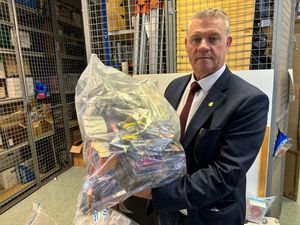Thieves target farms as rural crime soars in Staffordshire
The cost of rural crime has risen steeply across Staffordshire – up by almost 50 per cent – leaving residents feeling “under siege” from criminal gangs, new figures reveal.
In the West Midlands, the value has fallen slightly, thought to be due to the increasing use of hi-tech security devices.
The sharp rise in Staffordshire, driven mainly by high-value thefts of tractors, quad bikes and other farm vehicles, is one of the highest in the UK.
It cost the county more than £1,361,000 last year, a rise of 48.5 per cent on 2017. In the industrialised West Midlands, the figure was £830,000, a fall of 1.5 per cent.
Nationally, countryside crime cost the UK £50 million last year, a rise of 12 per cent, or £7.4m, on the previous year and the highest overall figure in seven years.
The items most commonly targeted by thieves across the Midlands were tools, quads and other all-terrain vehicles and farm machinery.
Some farmers claimed they no longer left their homes to attend agricultural shows with their families for fear of their property being raided while they were away.
'Under siege'
They said regular reports of rural thefts and stake-outs of farms by criminals made them feel “under siege” according to the investigation by NFU Mutual.
Simon Bates, the insurance firm’s senior agent in Stafford and Wolverhampton, said: “Limited police resources and repeat attacks are the biggest fears for people in rural communities.
“One of the most alarming findings from this year’s report is that this fear is forcing many to change the way they live. Some farmers are so concerned about the risk of criminal attack they can no longer leave the farm with their family to attend local agricultural shows.”
He said farmers were trying to keep one step ahead by digging ditches and putting up earth banks to keep criminals out. They were also using electronic devices such as infra-red beams, which send alerts to mobile phones, and geo-fencing, which triggers an alarm if tractors go beyond farm boundaries.
These technologies were becoming increasingly important against thieves who use battery-powered angle grinders to cut through chains and padlocks in seconds.
Mr Bates said: “The good news is that security technology is developing fast and we’re already clearly seeing that thieves avoid tractors fitted with good security kit and sheep that have been marked with microdots. Innovative use of social media to report criminal activity is also working well in some areas, and reducing isolation.”





